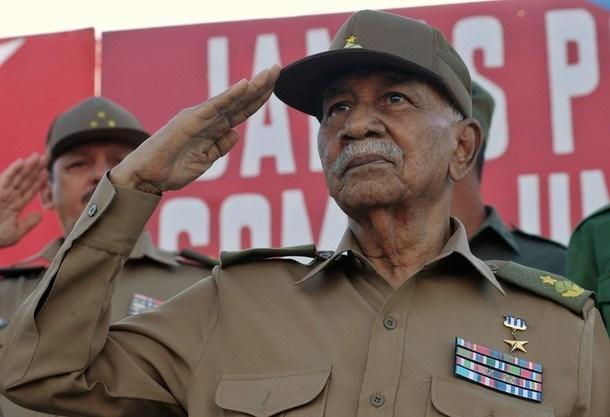
At that time, that yacht beset by the waves and crowded with men was still as anonymous as the slim mulatto young man who lay face down on the stern and stuck his head out to read the name of the ship that was taking them back to Cuba: Granma.
Much had happened since the days after Batista's coup d'état in 1952, when the worker from a large and humble home, together with his friend Armando Mestre, found in Fidel's preaching the path of honor that the homeland needed.
Then came, for Juan Almeida Bosque, the Moncada -and his firm rejection of all repentance- the imprisonment and exile in Mexico, until he arrived there, to that stormy sea, on which he sailed for the promise of being free or martyrs.
In his book Desembarco, published years later, he would recall with singular beauty what he felt when he was appointed, in the final hours of the voyage, captain and platoon leader:
"We are close to the Cuban coasts, time does not seem to move forward. I think of the new responsibility that has been assigned to me to lead and take care, but without overprotection, of these men that I will lead and take care of directly, and to guide them all in general to victory. It is necessary to be tough, to correct defects and to recognize virtues. Be friend and chief, soldier and captain, respect and be respected. Do not ask for what you are not capable of doing. To demand what is also a sacrifice for me. To make fair assessments, to be equitable and act justly. All this implies greater dedication. You have to be the first to get up and the last to go to bed. I will fulfill my duties with honesty and sacrifice."
"I am excited, as if my chest is tight. I need air. I go out on deck and take a deep breath of that sea air that refreshes me and when it hits me in the face it relieves me. What an honor I have received!"
With the fervor of one who bows to an oath, Almeida corresponded to honor with honor, from that "Here no one surrenders..." coming from the very essence of what is Cuban, to being Commander of the Third Front, and the responsibilities and political positions he exercised after 1959.
The Commander of the Revolution was an artist, one capable of fixing in his memory, in moments as tense as the dispersion after Alegría de Pío, the touching details: "On the little mountain where we are, the fire beetles sit letting their green lights show."
That sensitivity would give birth to hundreds of songs, such as La Lupe, copied on a notebook sheet and carried in the guerrilla's pocket, at the mercy of the water; and vibrant testimonies, written in a plain prose that oozes poetry by dint of simplicity: with Contra el agua y el viento he would win the Casa de las Américas Prize in 1985.
Fifteen years after his death, his life full of meaning continues to call for rediscovery. Just as Fidel wrote: "He defended principles of justice that will be defended at any time and in any era, as long as human beings breathe on earth. Let us not say that Almeida is dead! He lives today more than ever!"















